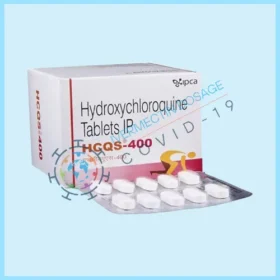- Your cart is empty
- Continue Shopping
What Are Anti-Malaria Drugs?
Anti-malaria drugs, also known as antimalarials, are medications used to prevent and treat malaria, a serious disease caused by Plasmodium parasites. These parasites are transmitted to humans through the bite of infected female Anopheles mosquitoes. Malaria is common in tropical and subtropical regions, especially in parts of Africa, Asia, and South America.
Antimalarial drugs work by killing the parasites in the blood or preventing them from multiplying, thereby curing the infection or stopping it from occurring in the first place.
How Do Anti-Malaria Drugs Work?
The malaria parasite goes through different life stages in the human body—mainly in the liver and red blood cells. Different antimalarial drugs target different stages:
-
Blood-stage drugs kill the parasite after it has infected red blood cells. These are used to treat symptoms.
-
Liver-stage drugs prevent the infection from becoming active, used for prevention or relapse control.
By interfering with the parasite’s life cycle, antimalarials stop the spread of infection and reduce the severity of symptoms.
Types of Anti-Malaria Drugs
There are several types of antimalarial medications, each suited to different situations and types of malaria:
-
Chloroquine
-
Once a first-line treatment, now less effective due to resistance in many regions.
-
Still used where the parasite remains sensitive.
-
-
Artemisinin-Based Combination Therapies (ACTs)
-
The most effective treatment for Plasmodium falciparum malaria.
-
Combines fast-acting artemisinin with another longer-acting drug.
-
Examples: Artemether-lumefantrine, Artesunate-amodiaquine.
-
-
Mefloquine
-
Used for both prevention and treatment.
-
Effective but may cause side effects like vivid dreams or mood changes.
-
-
Doxycycline
-
An antibiotic used for malaria prevention, especially for travelers.
-
Must be taken daily and continued for several weeks after leaving the risk area.
-
-
Atovaquone/Proguanil (Malarone)
-
Popular among travelers due to fewer side effects and short post-travel dose period.
-
-
Primaquine
-
Used to eliminate liver-stage parasites, especially in P. vivax and P. ovale.
-
Important for preventing relapse.
-
Who Should Take Antimalarials?
-
Travelers to malaria-endemic regions: Antimalarial drugs can prevent infection.
-
Patients diagnosed with malaria: Proper treatment cures the disease and prevents complications.
-
People living in high-risk areas: Sometimes used for intermittent preventive treatment (e.g., in pregnant women or children).
Side Effects and Precautions
Common side effects of antimalarial drugs include:
-
Nausea or stomach upset
-
Headache
-
Dizziness
-
Sleep disturbances
Some medications may cause allergic reactions or be unsafe in people with certain conditions (e.g., G6PD deficiency and Primaquine). It’s essential to consult a healthcare provider before starting any antimalarial drug.
Conclusion
Antimalarial drugs are essential tools in the prevention and treatment of malaria, a potentially life-threatening disease. With increasing global travel and drug resistance, it is more important than ever to use the right medication based on the region and type of parasite. Always consult a doctor or travel health clinic to determine the best antimalarial option for your situation.


